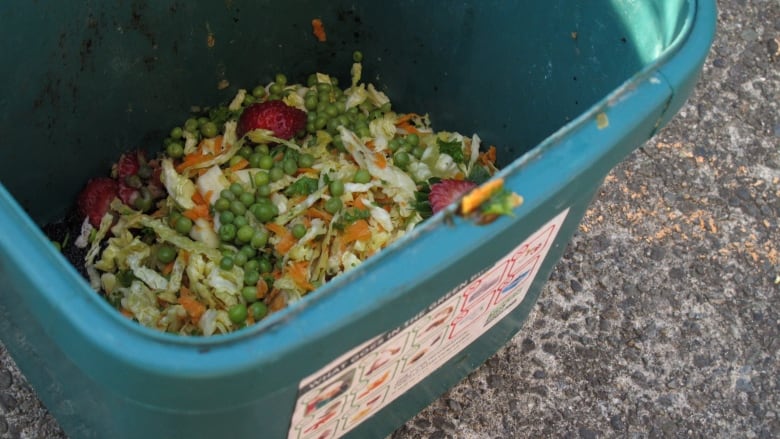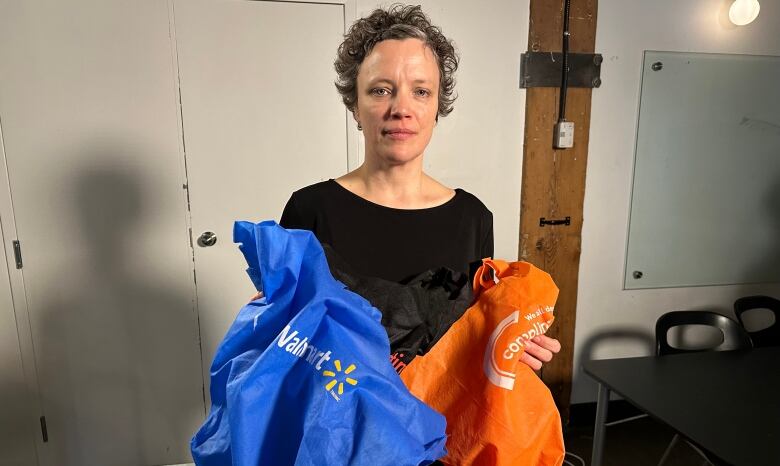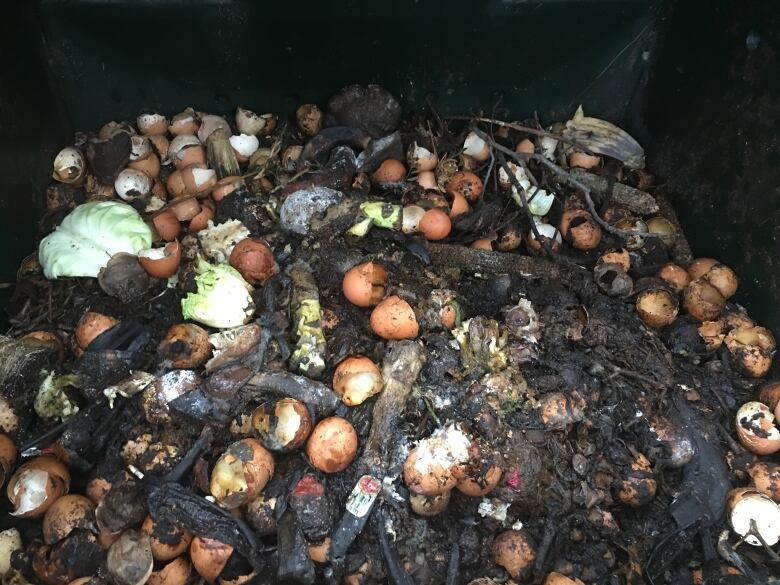Ontario's new organic waste plan puts focus on composting in highrises
Just over a quarter of highrise dwellers compost organics - and the city says that has to change

Toronto is hoping that new provincial rules willstop residents of the city's apartment buildings, condos and other multi-residential buildings from throwing food scraps in the garbage.
Almost half of Toronto residents live in condos, apartment buildings or co-operatives, but they recycle and compost much less than single-family homes.
- Wasted! The Story of Food Waste
- Ontario considers ban on throwing organic waste into the trash
- Keeping food out of trash: Why green bins can only go so far
Highriseresidents divert27 per cent of their waste, compared to 65 per cent for those who live in houses.
Ontario's new Food and Organic Waste Framework looks to tacklethat by changing building codes to require allhighrisesto have green bininfrastructure, as well as byeventually imposingan outright ban on any food scraps or other organics ending up in landfills.

Emily Alfred, who works as a waste campaigner for the Toronto Environmental Alliance, says it's often harder for people in multi-residential buildings to keep food and organic waste out of the trash,both because buildings lack infrastructure and because the practice isn't encouraged.
"So that means they're just bundling up all their food scraps and organic waste, putting it in the garbage chute and it's just going to landfill," says Alfred.
The danger there, she explained, is that organics both take upspace in landfills and create methane a greenhouse gas.
Collection varies building to building
There's also a patchwork of collection services for apartments, condos and townhouses.
About 65 per cent of multi-residential buildings are part of the City of Toronto's waste collection network. For those approximately 400,000 units, recycling and organics collection is mandatory.
The rest of units have private waste collection,so there's no recycling requirements and the waste ends up in private facilities.

In addition to changes to building codes,the new Food and Organic Waste Framework alsolooks to ban all waste that can be diverted from landfill beginning in 2022.
"Basically this mean organics won't be in the garbage anymore, at home, at work, or in the mall," says Alfred.
Though shesays she's not sure how the enforcement of the policy willwork, she says the changes conform to what condo-dwellersalreadywant.
"Food doesn't belong in landfills," said Alfred.
Expanding city facilities
VincentSferrazza, director of policy, planning and support for the City of Toronto, says aban to keep organic waste out of landfills would also impact theindustrial, commercial and institutional sectors.
But first, the city needs to get ready to deal with a whole lot more organic waste.
"We recognize that for a ban there needs to be the necessary processing infrastructure," he said.
Sferrazza saysthe city's Disco Road transfer station is capable of processing75,000 tonnes of green bin material a year.
The Dufferin organics processing facility on Vanley Crescent, meanwhile,can process 25 to 30,000 tonnes a year,but it is being expanded to accept more.
"By the end of the year we should be able to process 130,000 tones of organics and food waste," said Sferrazza.
Though the six-year project to expand the Dufferin facility will cost a total of $76.8 million,Sferrazzasays that extending the life of Toronto's Green Lane landfill willultimately save money.
"Sending less material to landfill will save money in the long run. Finding another landfill is a very costly and uncertain process," he said.
'Short-term pain for long-term gain'
Coun. Jaye Robinson,chair personof the city's public works and infrastructure committee, says the city is ready to make upfront investments to help the environment long-term.
"If we have to invest in additional equipment in order to do that, I think it's short-term pain for long-term gain," she said.

Robinson said changing the building code is coming at exactly the right time, given the number of new condos set to be built in the city.
"This is very good, to force the hand of developers to design and construct buildingsthatsupport that," she said."It's better to do it up front becauseit's difficult to retrofit afterwards."












_(720p).jpg)


 OFFICIAL HD MUSIC VIDEO.jpg)
.jpg)



























































































